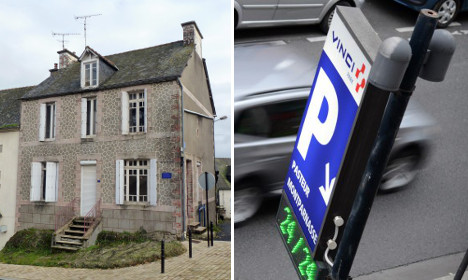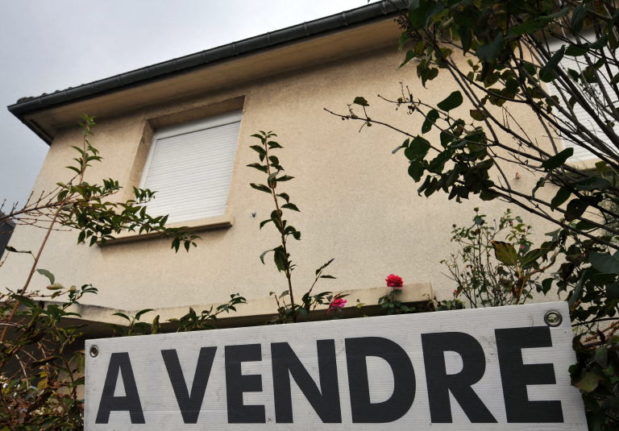
PROPERTY
Paris parking spots pricier than houses in rural France
A parking spot in Paris will cost you €40,000 in some places, according to new figures. Why not buy a house in France instead?
Published: 25 November 2016 14:06 CET

The French countryside house on the left is €39,500. A parking spot in some parts of Paris is €40,000. Photos: Leggett Immobilier/AFP
Anyone who has ever driven in Paris knows how hard it can be to find a parking place.
And it has gotten even worse in recent years, with a whopping 85,000 spots removed since 2001.
Many turn to buying a parking place of their own from apartment owners who have no need for them, but new figures show that this is becoming an expensive procedure indeed.
The Paris notary chamber has revealed that the average parking spot is €40,000 to buy if you want it in the 4th, 7th, 8th, or 16th arrondissements of the city (all admittedly the chicest parts of the city).
Before we compare the price to the rest of the city (where it's cheaper, of course), let's put this into perspective.
The spots are pricier than a bar of gold, and more expensive per metre squared than a kilo of caviar, as the LCI channel reported on Friday, but they're also higher than an entire home outside of the capital.
A budget of €40,000 is enough to buy a home almost anywhere else in France (granted many of which are huge renovation projects), at least according to online ads on the website of French real estate agents Leggett Immobilier.
This page shows a selection of homes that cost €40,000 or less, and include:

This three-bedroom, two-storey cottage in central France's Creuse department on a 92m2 plot, complete with a courtyard garden and barn.
And this 1,704m2 plot of land in the northern department of Manche if you want to start from scratch. And there are many, many more.
Back in Paris, it's not so bad for Parisians who don't live in chic areas. The whopping €40,000 figure drops by half for those wanting to park in the 13th, 18th, 19th, or 20th.
Across the all of central Paris, the average price for the first six months of 2016 was €25,000, the notary said.
A much cheaper option is to park in the suburbs of Paris, where averages were recorded at €18,000 for Hauts-de-Seine, €13,000 for Val-de-Marne and Yvelines, and €11,000 for Seine-Saint-Denis.
The notary said that in the other departments the average dropped to “around €10,000”.
The notary pointed out that over the last 25 years in central Paris, parking places have risen in value by 39 percent.
It noted that this was not in line with the 133 percent that property value has gone up over the same period.
Url copied to clipboard!



 Please whitelist us to continue reading.
Please whitelist us to continue reading.
Member comments